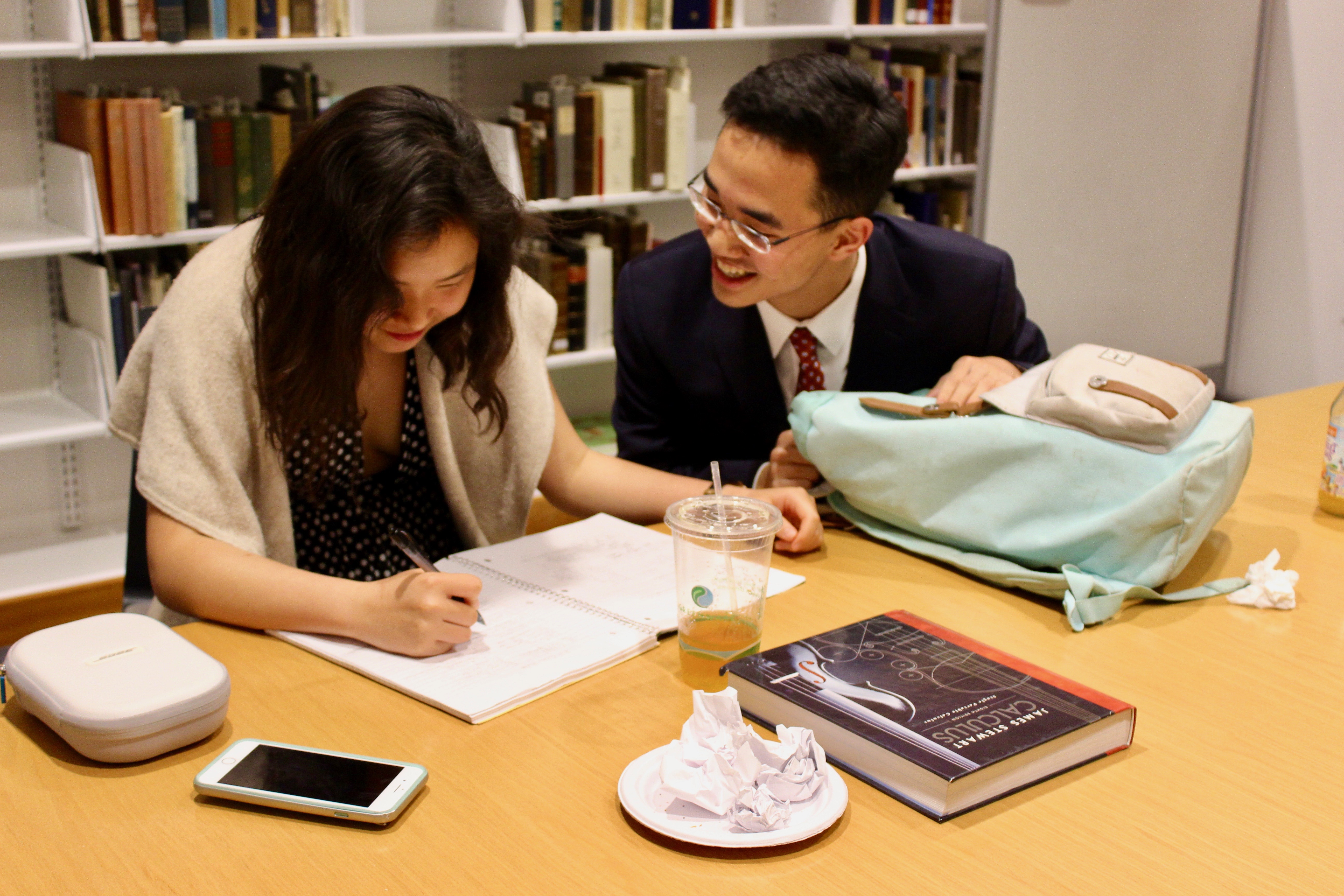This spring term, 10th graders with at least a 92 grade average during their winter term are permitted to study in the library from 7:45pm to 9:45pm during evening study hall.
Tim O’Brien ’20 first proposed the idea as a Student Council initiative. One of his goals was to make the transition from 10th to 11th grade smoother by gradually expanding the scope of students’ independence.
O’Brien believed that 10th grade library privileges would allow 10th graders to “experience the same freedom that upperclassmen have, and learn to navigate and study in the library.”

Credit: Hanna Deringer
He added, “It also serves as an incentive for students to work their hardest through 10th grade winter.”
O’Brien mentioned that 10th graders who have been granted this privilege feel that they are more productive in the library compared to their rooms.
Kikka Giudici ’20 agreed, articulating, “It makes it more accessible to work with other people and get the help we need.”
Assistant Student Dean Rebecca Melvoin framed the initiative as a way to have 10th graders adjust to studying outside of their rooms in a focused and rigorous space.
“The hope is that these 10th graders will set a positive tone in the library next year,” she said.
Director of the Library Marshall Carroll collaborated with Student Council, the Student Life Office, the Curriculum Committee, and various department heads to launch this pilot program.
He stated, “Everything I try to do in the library is student-centered and student-focused. We want to make sure we are providing as many opportunities for as many students as we can.”
Mr. Carroll explained that about 10 sophomores use the library every night and must sign in and out at the beginning and end of study hall.
He added that “[the 10th graders] know that they can also lose this privilege if they are not using it properly.”
However, there has been some disagreement surrounding the choice of a 92 grade average as a requirement for this privilege.
Cynthia Lugo ’20 specified, “Overall, I really don’t think this privilege should exist. No matter what your average is, everyone works hard at this school, so I don’t see the point in basing this privilege off of higher grades.”
Ms. Melvoin explained the reasoning behind the decision: “The 92 average made sense to us because this is a pilot program and we wanted to select about 40 students. A 92 average usually indicates strong study habits, and so we thought that these students would use these habits in the library.”

Credit: Hanna Deringer
Deerfield currently recognizes term averages above 90 as “Honors,” and term averages above 93 as “High Honors.” During the 2016-2017 school year, the top 20 percent of 10th graders had a grade average of 92.27 and above.
Ms. Melvoin recognized that some 10th graders may feel frustrated with the grade requirement because hard work and productive study habits do not always guarantee a 92 average or above.
O’Brien understood both the limitations and benefits of the requirement, stating, “There was a concern for those who don’t excel in their classes that their grades will suffer if they lose authoritative eye-watching over them during study hall. The school believed that the students with a 92 average have already shown that they are able to handle their workload, so they will not suffer if they began to work under their own supervision.”
He also recognized that allowing all 10th graders to study in the library may exceed the library’s capacity.
O’Brien acknowledged that some 10th graders were against the grade requirement, saying, “I realize that a student’s success doesn’t necessarily correlate with stronger abilities to work on their own. Also, the current system doesn’t necessarily account for those students who take more challenging classes, and I understand that that isn’t necessarily fair. On the other hand, there had to be a clear academic requirement, in order to serve its purpose as an incentive; it’s very difficult to account for class difficulty in this.”
Mr. Carroll emphasized that the grade requirement is not intended to leave anyone out. He described the initiative as a “meritocracy,” explaining, “These are students who have shown that they can handle the extra responsibility, as they have been achieving at a high academic level. It is never my goal or intention to exclude people. If anything, this is about including more people. I look at this as a first step.”
The initiative will continue for the rest of the spring term and will be evaluated as a possibility for next year’s 10th graders.

